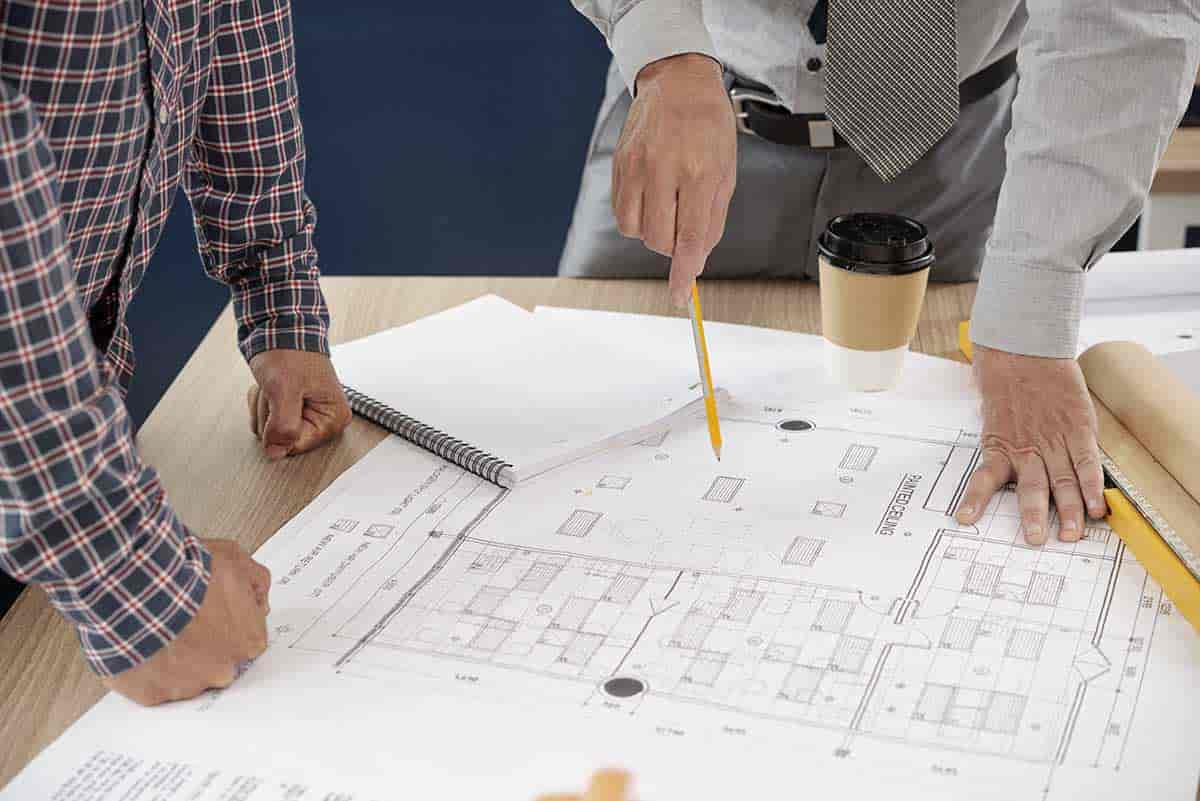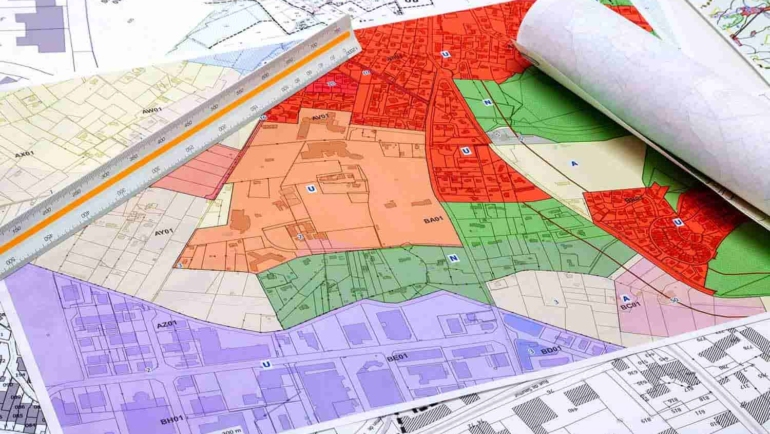Regardless of your age, amount of money you make, or social status, virtually everyone’s dream at one point has been to own a piece of land on which you design and build your own home. But once we move past “dream status” into reality, we see that developing land to build your own home is an intricate task.
Simply stated, developing land to build a house means altering a piece of property to the point where it meets the requirements necessary to construct a home. Requirements for developing land to build your own home will vary dependent upon the codes and regulations of the entities that govern your land’s specific location.
There are many factors involved in readying land for your new home’s construction. It is essential to research the requirements before purchasing the piece of land where you plan to build your new home to ensure the process goes as smoothly as possible, guaranteeing that you move into your dream home rather than a money pit.
Table of Contents
What Does it Mean to Develop Land to Build a House?
The process of cultivating property is complicated, even down to the very definition of what developing land to build a house entails. According to Nave Newell, a consulting firm specializing in land development, this “is a complex process that involves the evaluation, planning, engineering, and construction of improvements on a piece of land based on codes and regulations set by the municipality and regulatory agencies.”
Every piece of land being developed will present its own unique set of challenges, so regardless of whether or not you are a newbie or pro at the process, you should be prepared to enter this experience like it was your first rodeo.
How Much Does it Cost to Make Land Buildable?
As you might have guessed, determining how much it will cost to make your land construction-ready is a complicated process. It will vary widely depending upon your land’s location and exactly how much development is needed to make the property buildable.
On the low end, prepping land to build your new home will cost close to an extra $20,000. On the higher (not HIGHEST) end, land development will add on over $120,000 to the cost of your dream home project.
Some areas to include in your calculations are:
- Permits and fees that will include (but are not limited to):
- Building, inspection, certificate of occupancy
- Fees and permits related to septic systems (if you opt for a septic system)
- Impact fees (if applicable)
- Water and sewer connection costs (if you do not opt for septic)
- Septic System costs (if you opt for septic)
- Water well (if applicable)
- Utilities including electric, internet, phone, cable (where applicable)
- Survey and engineering inspections
- Earthwork
- Landscaping
- Paving
10 Tips for Developing Land to Build a House
As previously stated, every new land development project will present its own unique set of issues. These 10 tips will surely come in handy, from start to finish, if you are going through this process.
Tip 1 - Know the Total Budget Available for Your Project
As we have partially uncovered here already, the costs involved in developing land can be wide and varied. Multiple factors need to be included when calculating the cost to prepare your land for building. It is essential to know your total budget for the entire project before you make any purchases.
If you do not know how much to set aside for each phase of the project, by the time you get to the end of the build of your dream home, if you run out of money, the odds are you will not be able to complete its construction. Too often, partially constructed structures are left to rot because there is no money left to finish the project. Do not let your dream home become the next victim of poor planning.
Doing extensive research on the steps necessary to develop and build on a piece of land (including doing research specific to your project) is key to the success of your dream build. Have your calculations checked and rechecked by experts. The old saying “poor planning leads to poor performance” should not be on the lips or in the minds of anyone involved with your new home.
Tip 2 - Secure Financing
To make sure that your project goes off as smoothly as possible, you will want to ensure that you can finance the entire venture from start to finish. By doing the proper research and understanding the price as a whole needed to carry out the land development and construction of your property, you will know if you can secure the financing of the project in its entirety before you begin.
Again, you do not want to see an unfinished dream home every time you drive past your prospective property. Making sure you have enough funds available to complete the project, including leaving room for unexpected costs that will, no doubt, arise, will help you get one step closer to residing in the home you’ve always wanted.
Tip 3 - Research the Property Before You Purchase
It is crucial to the success of your project that you are familiar with and know all there is to know about the potential site of your new home before its purchase.
Some things to consider when researching include but are not limited to:
- Can you build the type of structure you envision on the property?
- Are the costs of developing the land in your budget?
- Is the title to the land free and clear?
- Who owns the mineral rights on the property?
- Is the Return on Investment (ROI) worth it?
Tip 4 - What to do About Water?
If you can connect to a public water system, a choice you have to make when developing land for building is whether you plan to connect to that public system or you plan to have a septic system installed.
Knowing and weighing your options and understanding the value and drawback to each is essential in determining your final costs, so looking into this beforehand is highly recommended.
Tip 5 - Do You Have Both Types of Access to Your Property?
When you are developing land to build a house, you must know if you have both types of necessary access to the property. The two types of access to the property are legal and physical. Though it may sound crazy, you can have one without having the other.
Legal access is the most important of the two. This means you have a legal right to get to the property from a public road. If you do not, this would mean that you would be forced to trespass onto someone else’s property to get to yours, and that is not a situation anyone wants to have to deal with.
Physical access means that you can get onto your property from the ground, typically by driving. If you cannot, you need to ensure that you have included the amount necessary to create physical access to the land in your total calculated costs.
Tip 6 - Will You Be Part of an HOA or POA?
If you are building in a community, you could be part of an HOA or Home Owner’s Association. This is a governing body of homeowners that can dictate the way buildings on your property are constructed.
A POA, or Property Owner’s Association, is more geared towards the actual real estate of area businesses and works to show value to improving property over time to the surrounding communities. Chances are this won’t apply to your property, but double-checking is suggested.
Knowing if you will have to commit to either of these entities before building your home will be valuable.
Tip 7 - Hire the Right Professionals
As it is doubtful that land development will be a DIY project, knowing the best professionals to hire for what job will be an invaluable asset to your project.
Researching the best professional for each job needed to complete the project will save you time and money because you will already have the right people lined up for the right job. This tip should keep you from spending valuable project resources to have the job done again because you hired someone known for doing less than stellar work.
Additionally, having those professionals line up and ready to work on your project when the time is right will save time. If possible, you never want your project setting idly while waiting for someone to perform a task for you.
Tip 8 - Location, Location, Location
It is essential to familiarise yourself with the location of the property you plan to develop for your future dream home. Understanding the area and its surrounding communities will help ensure you choose a site where you are comfortable living, possibly for the rest of your life.
Tip 9 - Expect the Unexpected
While you want this venture to run smoothly from start to finish, it is not realistic to think it will come off without a hitch. Every project has setbacks, and this one will be no different. Expecting the unexpected will help you to prepare mentally for the inevitable problems you will encounter.
Also, being realistic about encountering problems before finalizing your budget will be very helpful. While you cannot be sure what to prepare for exactly, allowing some “wiggle room” in your budget for hiccups, missteps, and obstacles will do wonders with keeping your project on track budget-wise.
Tip 10 - Know Your Expiration Dates
You have been good about getting all the correct permits to develop your land to build your dream home. But did you know that those permits have expirations? It is just as essential to make sure that your permits do not expire as it is to get them in the first place.
For most permits, you can quickly get the time extended, provided you can show that you have made progress towards completing the project since the issue date. While these permits can’t be extended forever, typically, they can be extended until you can complete your project.
Keeping in mind that your permits DO come with expiration dates, it is recommended not to obtain a permit until you can start work on that particular project phase so as not to run into extension issues.
You are fortunate to be able to live the dream that, for most, never moves past that stage. You are ready to develop a piece of land to construct the home you always have envisioned. To make sure that the dream becomes a reality, you need to understand every project phase before you begin. Otherwise, you could be in for one of the biggest nightmares of your life.
Extensive research into the entire process, especially what is involved with land development, is vital to ensuring you are not biting off more than you can chew and you can secure enough funds to finance the project entirely. If you do these things, then you are setting your project into land development for your dream home to go off as smoothly as humanly possible.




